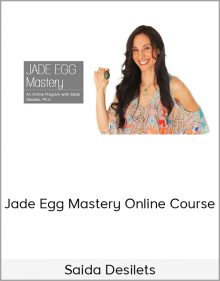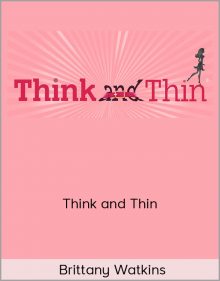Lucas Rockwood – Gravity Yoga Video Series – Double Your Flexibility
Original price was: $39.00.$17.00Current price is: $17.00.
Muscle cramps, poor posture, and abnormal breathing patterns can be greatly reduced with proper pre-bed stretching exercises. Many find that with just 15 minutes of targeted stretching before bed, they sleep deeper and wake up refreshed.
- Description
- Reviews (0)
- More Products
Description
Lucas Rockwood – Gravity Yoga Video Series – Double Your Flexibility
Sale Page: https://www.yogabody.com/stretching/
If You Have 15 Minutes Per Day, I Can
Double Your Flexibility in the Next 4 Weeks…
Unlock Your Hamstrings, Hips & Spine
Top Benefits You’ll Experience
Improve Posture
If you look at modern bodies in profile, you’ll often see a forward tilted pelvis, sway back, hunched shoulders, and a text neck. Postural imbalanced often begin in teenage years and become problematic by middle age. A misaligned body moves inefficiently and is much more prone to injury. Fortunately, many of these conditions can be corrected with targeted training.
Reverse Aging
Can you get up and down from the floor without using your hands? Can you sit cross-legged comfortably? Are you able to interlace your hands behind your back with straight arms? How does your body look when you’re tying your shoes? Through flexibility training, you can regain the mobility of someone 10 years younger. This helps you enjoy your favorite activities, move without pain, and gives you confidence in your body.
Travel in Comfort
A huge part of the discomfort you experience from long car and airplane rides is due to poor mobility. When you regain your natural flexibility, it becomes easier and more comfortable to sit for long stretches of time—and yes, even cross-legged on the floor (that was always a huge one for me).
Improve Your Sleep
Muscle cramps, poor posture, and abnormal breathing patterns can be greatly reduced with proper pre-bed stretching exercises. Many find that with just 15 minutes of targeted stretching before bed, they sleep deeper and wake up refreshed.
Enjoy an Active Life
Whether you’re passionate about yoga, skiing, mountain biking, or just being able to throw a frisbee around in the park, when your body is open and limber, everything works and feels better. Movement becomes fun again.
Better Love Life
There is no need to explain how flexibility can help in this department; you can use your imagination.
Avoid Injuries
Tight muscles don’t cause injuries, poor movement patterns do. When you’re tight and imbalanced, your body creates work-arounds that get you into trouble. People with tight hips and hamstrings often externally rotate their hips and swing their legs when they walk or run. People with tight psoas muscles often sway their back and stick out their bum. People with tight shoulders are often in a constant hunch. These imbalances lead to lower back, neck, and knee injuries, among others.
The number one reason people stop running, going to the gym, or doing the activities they love is because they get hurt and lose momentum. Once you stop exercising, many people never get back to it. The good news is that with an intelligent self-care flexibility training regimen, you can move toward a balanced body and reduce your risk of injury for life.
Flexibility training is most useful for a prehab / rehab routine after exercise. Forget about bobbing up and down over your toes before a run, this intense approach uses a targeted mobility routine to transform your body, correct imbalances, and increase range of motion (ROM).
Reduce Pain, Stress & Tension
You are all-too-familiar with what it feels like to have soreness and post-workout pain, but did you know that mental and emotional stress can also get trapped in your shoulders, hips, and lower back? Stress changes your body language, and when that becomes chronic, pain and tension can manifest in trigger points in your body. Targeted stretching is perhaps the best remedy.
Joint pain, muscle soreness, and cramping can be reduced (and even eliminated) with intelligent mobility training. Your body is designed to express itself with a wide range of motion, and the more you tap into those natural patterns, the more the aches and pains of sedentary life fade. Many are surprised to learn that lower back pain is often a result of tight hip flexors, that neck pain can be due to locked-up shoulders, and that their hamstrings can trigger dozens of aches in the body.
Improve Circulation
Research shows that an intelligent stretching routine promotes vasodilation, increasing circulation, and boosting the health of the effected tissues. Cardiovascular strength is not the only factor affecting circulation. Since stiffness is often systemic, the tightness in the backs of your legs could indicate you have impaired circulation to your extremities and connective tissues. Flexibility training unblocks stuck areas and helps to naturally improve whole body circulation.
Why Are We So Stiff?
Most students I work with today are frustrated because they have lost their basic range of motion, such as the ability to bend forward at the hips, squat down deeply, and clasp their hands behind their back.
By the time most people reach adulthood, not only have they stopped playing like a kid, they’ve lost the functional flexibility required to squat and lift a box or a child from the floor, hang from monkey bars, cross their legs while sitting on the floor, and move freely in their favorite sports.
The good news is you can regain your lost flexibility (and often much, much more), and the benefits you’ll experience go way beyond the yoga mat. Here’s why flexibility matters:
My name is Lucas Rockwood, and I’m now a yoga teacher and teacher trainer, but I used to be a stiff office worker who couldn’t even touch his toes—not by a long shot. I tried yoga classes, at-home videos, and read a half-dozen human anatomy books, but nothing worked. Every day, I suffered through your typical stretching exercises, convincing myself it was worth it, but I wasn’t getting results.
Did You Know…
- Most yoga poses demonstrate rather than develop flexibility
- A whopping 50 percent of your flexibility gains come from your nervous system—not your muscles
- Many flexible yoga teachers train for flexibility at home with a completely different approach than they teach in class
- Most stretching exercises you know are warmups, not flexibility practices
- Nutrition plays a huge role in your body’s response to stretching
- There is overwhelming evidence which practices are truly effective for increasing your range of motion—yet most people are unaware
When you’re stiff, it feels like you’re trapped in your own body. Since you’re reading this today, maybe you can relate to that stuck feeling in yoga, during the other physical activities you love, or even when you’re simply trying to sit cross-legged on the floor.
Before I discovered the Science of Stretching™, I had the mobility of someone in his 70s (yet I was in my early 20s). People tend to get stiffer as they age, obviously, but I couldn’t imagine losing any more mobility, so I became determined to find a solution.
What Does “Double Your Flexibility” Mean?
In stretching terms, “doubling” actually means “halving” the difference between your current range of motion with functional targets. Remember, our goal is functional range of motion, not contortion or tricks, so a doubling is very attainable.
PHOTOS: in the first photo I am palming the floor in a forward bend. Try this pose, and measure how far you are from this goal. Within 30 days, you should be able to half that, aka double your range. In the second photo, I’m sandwiching my legs in double pigeon. Measure the gap between your knees today, and within 30 days, you can expect to cut that distance in half, aka double your range in this pose.
My “Stiff Office Guy” Story
I remember going to a crowded party in New York City in 2002. There were no chairs left so my friend suggested we sit on the floor—and why not? Sitting on the floor is a perfectly normal human thing to do, except that, like most people, I had not sat on the floor since elementary school.
This is where it got ridiculous.
The girl I was with was an avid yoga student, so she flipped one leg on top of the other sitting in Lotus position as if it were the easiest thing in the world. But me? My hips were so tight, I couldn’t sit on the ground without my knees bent up to my chest and my back curled up like Quasimodo.
After 10 minutes, I was literally sweating in discomfort, red-faced, and embarrassed. It was so obvious I was suffering that a guy sitting nearby started teasing me about my tight hips. It sounds like a small thing, but it was a moment of truth for me. I realized I had let myself go, and I needed to do something about it.
I was 23 with the flexibility of a 73-year-old, and my stiffness was affecting my life. That night, I did some ad hoc self-tests at home to see just how stiff I was. I started by checking my profile in the mirror, and right away noticed my standing posture was horrible. I had lower back pain while driving, sitting on airplanes, and at work in my office chair—I constantly had to get up and walk around to work out the kinks in my neck. I was not fit by any means, but I did go to the gym and workout. All I did was ride an elliptical and lift on some weight machines, but I was still getting minor injuries.
When I bent forward, my hands reached just halfway down my shins; I couldn’t reach my ankles, much less my toes. Backbends were out of the question, and my hips felt like two big blocks of ice. All that aside, I knew that there had to be a way to fix this. I knew this was a soft tissue problem—not a bone problem—so I set out on a mission to find a solution.
It’s Not Too Late
Ask yourself, “What if first thing in the morning, I could bend over and put the palms of my hands flat on the floor in a forward bend?”
What if you could sit cross-legged with no back support for an hour in the middle of a room without any discomfort? What if you could twist 180 degrees, do a full backbend with your arms straight, and clasp your hands behind your back in a shoulder stretch?
All of those movements sounded impossible to me during my flexibility crisis, but I now know that they are basic movements that can be relearned by anyone who is willing to set aside 15 minutes a day for flexibility training and add specific micronutrients to their diet to support their tissues. Proper flexibility training and proper nutrition are where you’ll find the biggest results.
Why Yoga Classes Often Fail
(for flexibility)
There is a stereotype that yoga classes are all about flexibility, but that’s almost never the case. Most classes focus on strength, balance, breath, concentration, and the mind-body connection. Flexibility is surely on the list, but it’s usually at the bottom of the list of priorities in most classes.
I didn’t know that, so I became a yoga maniac going to class every day. The other students seemed pretty limber, so I thought it was logical to sign up for a membership. Much to my surprise, after weeks of suffering through classes, I hadn’t achieved noticeable results.
Don’t get me wrong, I loved yoga. I felt more calm, my balance was improving, and I was even losing weight; but I was still as stiff as a board and didn’t see that changing anytime soon.
Then I met this weird guy named Anthony.
In yoga class, you’re supposed to stay focused, but I couldn’t help staring. After six weeks, Anthony could lay flat against his shins in forward bends, cross his legs in full lotus, and go three times as deep as I could in backbends. He had leaped from beginner to intermediate extremely quickly. Whatever he was doing, it was working; and what I was doing clearly wasn’t.
Finally, I had to say something.
After two painful months of Hot Yoga torture (I was going every day), I finally got up the nerve to invite Anthony for pizza after class (this was before I learned how to eat properly for flexibility). Anthony reluctantly agreed, and although he didn’t eat anything during our meeting, he did tell me three secrets to stretching flexibility that I later learned are true for almost everyone.
#1. Anyone Can Become ‘Wow’ Flexible
What most people would consider extreme flexibility—Splits, Full Lotus, Wheel pose—is actually just natural Basic Range of Motion (bROM). If you doubt this, spend an afternoon with any six-year-old kid and you’ll realize that we were all naturally flexible, we’ve just lost it. The ‘wow’ factor shouldn’t be a wow at all. It should just be normal, but we’ve all let ourselves get to a ridiculous state of inflexibility, where basic tasks, such as bending over, involve stretching.
#2. You Don’t Become Flexible Going to Yoga Classes
This was a real eye-opener for me. I used to think yoga was all about stretching and flexibility, but Anthony taught me that most yoga poses demonstrate rather than develop flexibility. “Yoga is a holistic health practice,” he told me. “If you’re stiff, you don’t need yoga. You need to stretch!”
After struggling through daily yoga classes for two solid months, this was the last thing I wanted to hear, even though I knew it was true from experience. Despite all my efforts and commitment, my stretching flexibility had barely improved at all.
#3. Pizza Makes You Stiff
Well, not just pizza, but nutrient-poor food in general. Anthony told me, “It’s possible to eat junk food and improve, but if you want to increase your stretching flexibility fast, you need to eat better and take care of your micronutrients.”
He said, “To think that if you stretch more you’ll become more flexible is like saying if you eat less, you’ll lose weight. In theory, this is true, but in the real world, it just doesn’t work like that. To lose weight, you’ve got to eat right, and to get flexible, you’ve got to stretch right and get proper nutrients.”
I could tell Anthony was getting sick of my questions, but before he left, he wrote down a series of awkward yoga poses that he claimed he practiced every night before bed for about 15 minutes. He also made me a list of foods and supplements—most I had never heard of before.
Be the first to review “Lucas Rockwood – Gravity Yoga Video Series – Double Your Flexibility”
You must be logged in to post a review.
-
Live Traders – Professional Trading Strategies Presented
Original price was: $497.00.$53.00Current price is: $53.00. Buy now -
Chudc Duff – ReaIBodyWork – Thai Massage for Mat ft Table
Original price was: $43.00.$16.00Current price is: $16.00. Buy now -
ROI Engine Full Agency Program
Original price was: $1,497.00.$197.00Current price is: $197.00. Buy now -
Jay Morrison – Self Mastery Course
Original price was: $497.00.$97.00Current price is: $97.00. Buy now -
Vicki Lau – VFX Production On-Set: Becoming a Visual Effects Supervisor
Original price was: $89.00.$32.00Current price is: $32.00. Buy now -
Michael S Broder – Overcoming Your Depression
Original price was: $12.00.$10.00Current price is: $10.00. Buy now





















Reviews
There are no reviews yet.